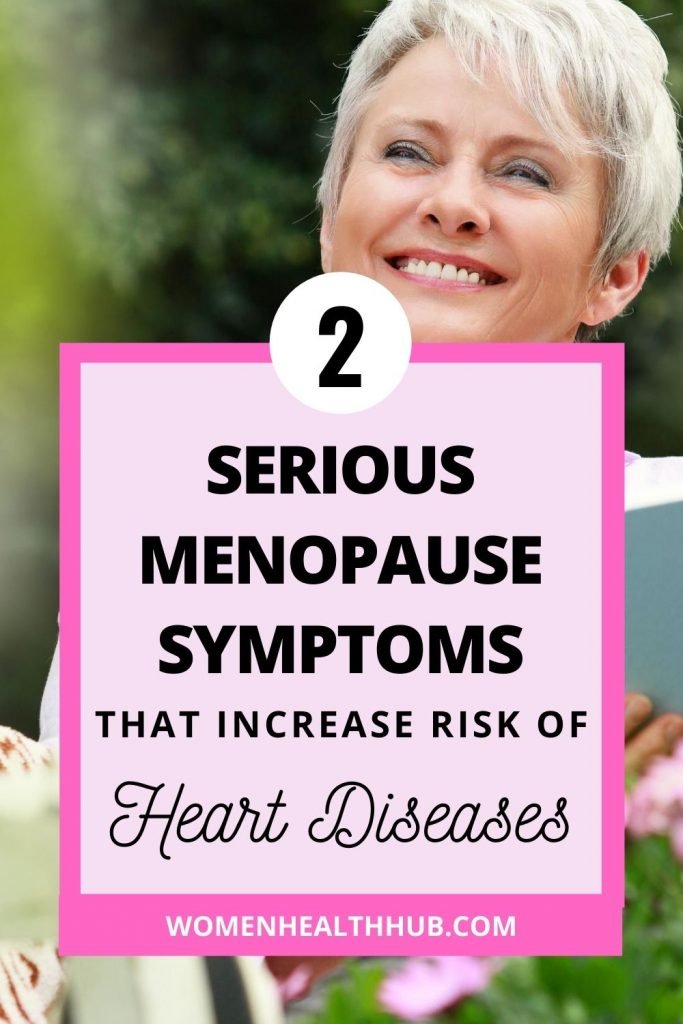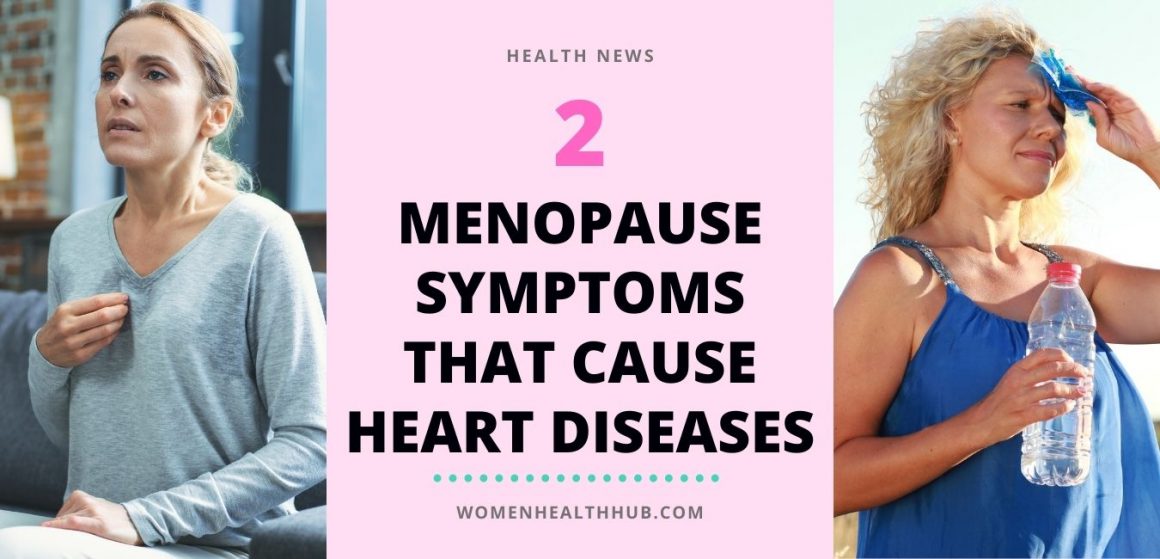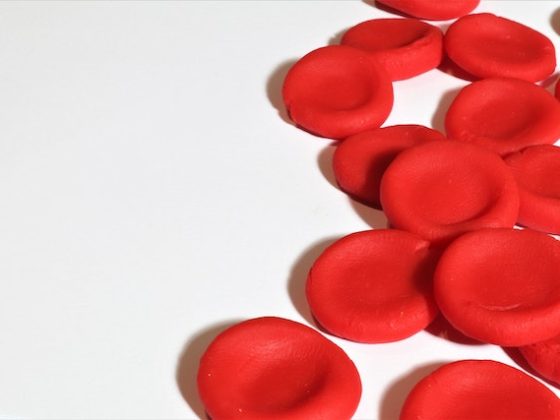Hey there! This post may contain affiliate links. As an Amazon Associate, I earn a teensy commission from qualifying purchases when you buy through these links (at no additional cost to you). For more info, please check the full disclaimer.
Do you often experience severe night sweats and hot flashes since menopause? According to a recent study, you might be at risk of cardiovascular diseases.
Menopause is a challenging period in every woman’s life that begins in the late 40s. Your body undergoes various hormonal changes which naturally lead to uncomfortable health conditions.
The most common problems in menopausal women are night sweats and hot flashes. Also called vasomotor symptoms, these changes alter the diameter of blood vessels because of hormonal imbalance.
This disturbs the blood circulation and as a result, you may experience sudden blood flow to neck or face, increased heartbeat, and hot temperature.
Let’s take a look at what increases the risk of heart diseases in menopausal women.
Research Details
Purpose:
The aim of this study was to find out the link between the vasomotor symptoms and the risk of cardiovascular diseases in menopausal women.
Researchers:
This research was conducted by Diana Kuh, Nancy E. Avis, Annette J. Dobson, Gita D. Mishra, Samar R. El Khoudary, Rebecca Hardy, Hsin-Fang Chung, Debra J. Anderson, Dongshan Zhu, Eric J. Brunner, Nirmala Pandeya, Ellen B. Gold, and Sybil L. Crawford of the University of Queensland. The study was published in June 2020 in the Journal of Obstetrics & Gynecology.
Materials & Methods:
Researchers gathered data about 23,000+ postmenopausal women from 6 different studies. They collected and analyzed information on the frequency, timings, and intensity of vasomotor symptoms and how it contributed to cardiovascular problems later on.
Results:
Results revealed that the frequency of typical menopausal symptoms related to blood circulation had no link to heart diseases. But the severity and the timings did affect women’s heart health after menopause.
Summary:
Here’s an overview of the findings:
What is Menopause?
Menopause is an inevitable new chapter in every woman’s life. It usually occurs at the age of 45 years or more, but in some cases, you may start showing early symptoms of menopause, also known as premenopausal signs during the mid-30s.
During this phase, your body undergoes major hormonal changes – particularly, low production of estrogen & progesterone – two most important female sex hormones.
As a result, you may experience a wide range of uncomfortable menopause symptoms that may even affect your quality of life.

What are the Signs of Menopause?
Although it may be years before you encounter all, here are some typical symptoms of menopause:
- Irregular menstrual cycle
- No period for a year
- Hot flashes
- Profuse sweating at night
- Insomnia
- Irritable mood
- Vaginal dryness
What Causes Heart Diseases in Menopausal Women?
As I mentioned before, menopause alters hormones and disturbs the body’s internal state of balance or homeostasis. Disrupted homeostasis raises body temperature and makes you feel extremely hot.
Additionally, temperature dysfunction leads to constriction and dilation of blood vessels, causing a sudden rush of blood to face and neck. This may result in a severe heartbeat and intense sweating at night.
Don’t worry though. There are several treatment options to manage menopause symptoms and reduce hot flashes and night sweats.
Many women opt for hormone replacement therapy. Others begin new lifestyle changes in diet and physical activity to prevent further health complications, including cardiovascular diseases during menopause.
How to Reduce Menopause Symptoms
Here are some effective tips to manage the symptoms and reduce risk of heart diseases in menopausal women.
Have you or anyone you know gone through menopause? How did you cope with the initial uncomfortable symptoms? Also, what are some practices you follow to keep your heart healthy?
Share with me in the comments below.
References:
- https://www.princetongyn.com/blog/8-tips-for-managing-menopause-on-the-job
- https://www.contemporaryobgyn.net/view/managing-menopause-part-1-vasomotor-symptoms









